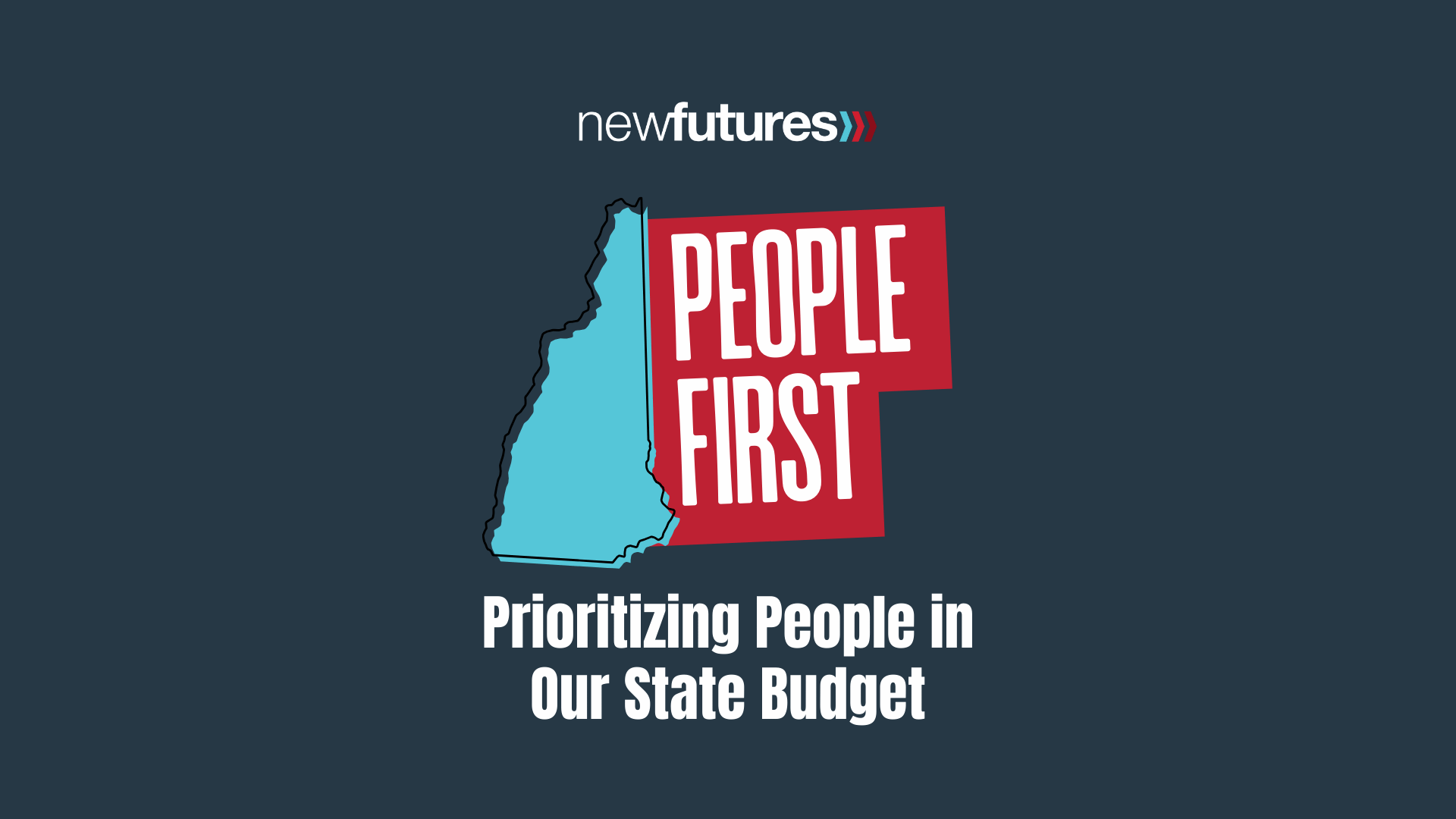New Futures' Statement on the Senate Budget Proposal

CONCORD, N.H.--Yesterday, the New Hampshire Senate voted to finalize its 2026–27 state budget proposal. The proposal represents a significant step forward in protecting essential services for Granite Staters, restoring many of the deep cuts proposed in the House budget.
The Senate proposal restores funding for several critical programs that were eliminated or severely reduced in the House version of HB 1 and HB 2, including:
- Community Mental Health Program Funding ($19 million per year restoration)
- Medicaid reimbursement rates (reversing House proposed 3% cuts)
- Alcohol Fund funding restored (reversing $10.7 per year in cuts for substance misuse prevention, treatment, and recovery)
In addition, the Senate included funding for other key New Futures priorities, like the 988 Crisis and Suicide Prevention Lifeline (SB 255), funding for FAST Forward wraparound services for youth mental health (SB 128), improvements to the administration of New Hampshire Child Care Scholarship (SB 243), and investments in maternal mental health (Momnibus 2.0 - SB 244).
“We applaud the Senate for recognizing that these programs are investments in the health and well-being of our communities,” said Kate Frey, Vice President of Advocacy. “By restoring funding for community mental health services, reversing the cut to Medicaid reimbursement rates, and supporting critical programs like the 988 Crisis Line, the Senate has built a budget that better prioritizes human needs and reflects our state's commitment to ensuring every Granite Stater has the opportunity to thrive.”
While advocates celebrate these restorations, some concerns remain in the Senate proposal, including the elimination of the Prescription Drug Affordability Board, the inclusion of Medicaid work requirements, increased Medicaid co-pays for low-income residents, and the failure to expand eligibility for Medicare Savings Programs, which would have helped more older adults access affordable health care.
To become a law, the budget bills (HB 1 and HB 2) must be passed in the same form by both chambers before being sent to the Governor. That means the House of Representatives must vote to concur on the budget bills. If the House does not concur, the bills will go to a Committee of Conference, a small committee of senators and representatives, to work through the bill.
"The Senate has made tremendous progress in putting people first," Frey continued. "We encourage continued dialogue to build a final budget that truly puts people first in every decision."
People First State Budget Priorities
Earlier this session, New Futures identified key priorities for lawmakers to include in the state budget. See where they stand:

